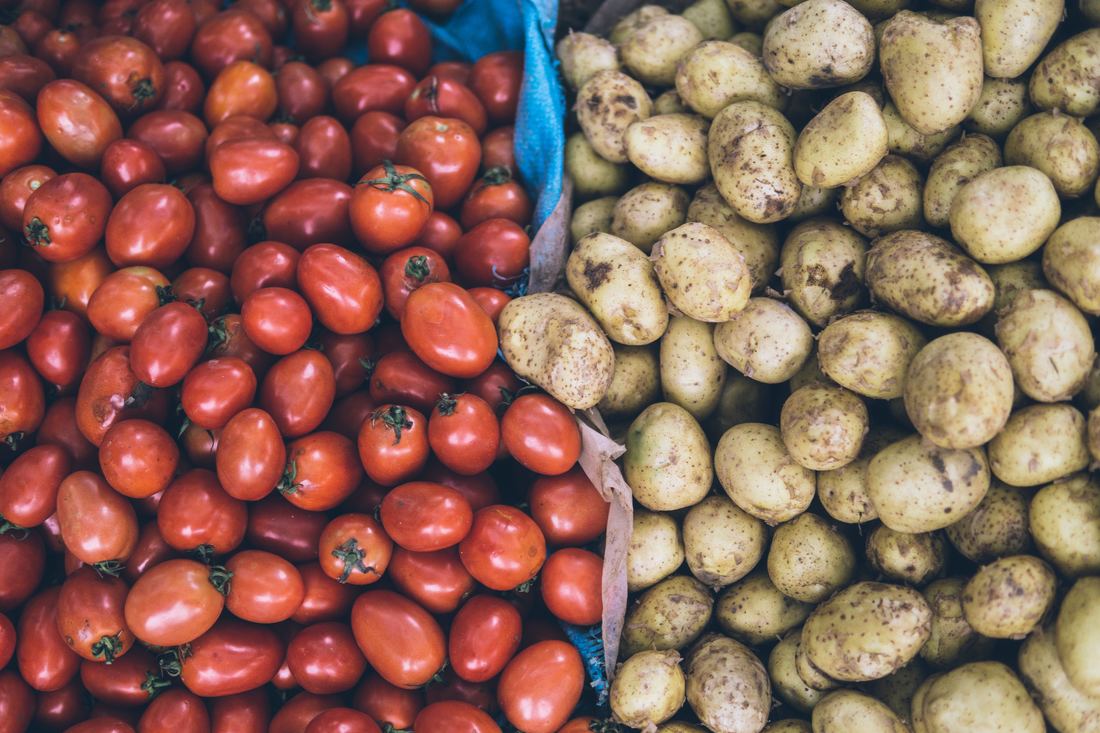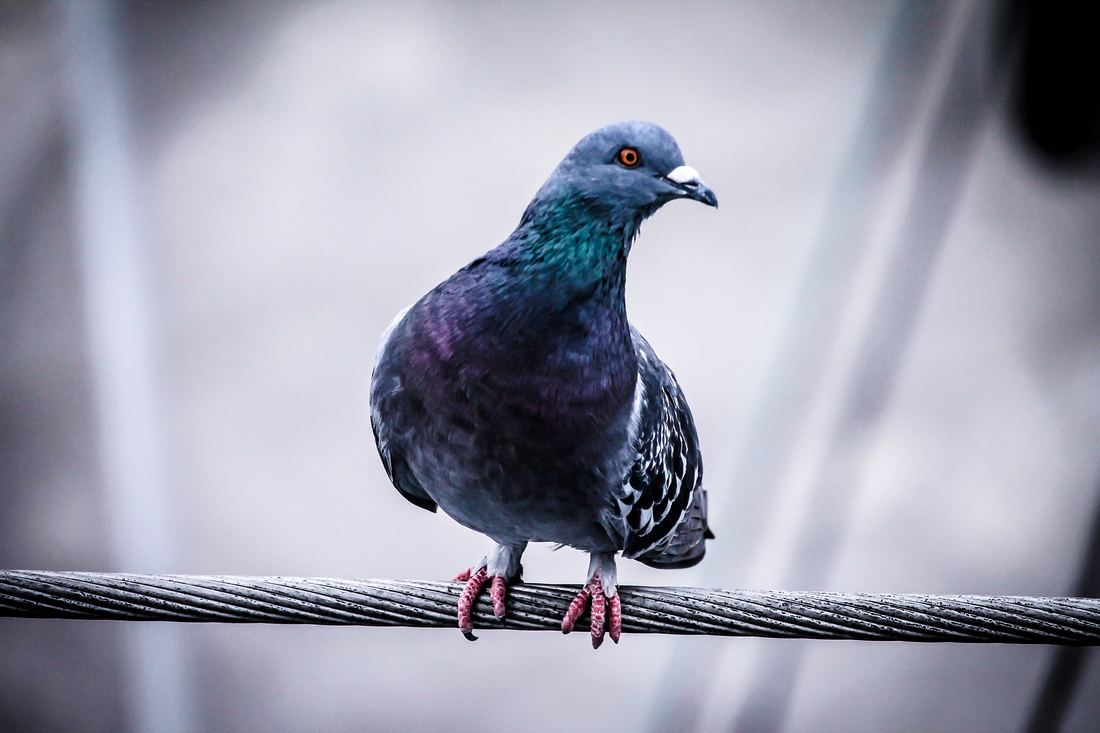|
-photo by Linh Pham on Unsplash
I watched the video at this website again today: http://cutthecravings.com, and thought I'd write about it. The link leads to a video by Dr. Steven Gundry, who wrote The Plant Paradox, warning about the dangers of lectins. Lectins are anti-nutrients, a type of carbohydrate-binding protein that some plants use to protect themselves against overgrazing. Lectins can kill off insects. In humans, the impact isn’t immediate, but can lead to leaky gut, joint aches, diabetes, obesity, and more. This is an infomercial video, but it’s got some good information. I think the prebiotic he’s selling would be a good support for people dealing with health issues like leaky gut or IBS, as well as for recovering addicts, but it’s not cheap, something like $50 for a month’s supply per person if one buys it in quantity. The info is helpful though, so here you go: To save you the trouble of watching (it’s an hour long), according to Dr. Gundry the bad “health foods” we should reduce or avoid are: 1. All nightshades* (tomatoes, potatoes, eggplants, bell peppers, tomatillos)—although Roma tomatoes are fine if we squeeze out the seeds and discard the skin by dipping in boiling water and peeling it off, as the lectins are in the seeds and skin of tomatoes. 2. Beans* (according to Dr. Gundry, undercooked beans are responsible for 20% of the food poisoning in the US because of high lectin content. From government food safety websites, I’ve learned that incorrectly cooked kidney beans in particular are so high in lectins that they can theoretically kill. https://www.fda.gov/Food/FoodborneIllnessContaminants/CausesOfIllnessBadBugBook/default.htm. Undercooking them makes them more dangerous than they are in their raw state. I’ve completely stopped using kidney beans, especially since I don’t like them anyway... 3. Cashews* (these are actually a bean) 4. Peanuts* (can cause colon cancer in men) 5. Whole grains/any grains*. Lectin content is higher in whole grains than in processed flours. *Note that peeling and deseeding nightshades, cucumbers, and squash will get rid of the high lectin content. Fermenting high lectin foods helps too. **Note that soaking and sprouting beans and grains can reduce lectin content significantly, but be careful of possible mold contamination. Superfood we should eat every day: prebiotics like acacia fiber, agave inulin, or plantain flour. (Plantain flour still has high lectin content according to some, but it's lower than the amount in raw potato starch. Some people do not respond well to acacia fiber or agave inulin, so I'm listing plantain as an alternative.) Be careful to go slow when starting prebiotics, as it can cause lots of gas and intestinal discomfort if not... 3 healthy treats from a lectin standpoint: dark chocolate, coffee, extra virgin olive oil. (Be careful with dark chocolate if you suspect you have a problem with oxalates!) Artificial sweeteners: Duke University researchers found 1 packet of Splenda kills 50% of the microbes in your gut. If you drink a diet soda, you are killing 50% of your microbes, which take 2 years to grow back. Dr. Gundry recommends stevia only. I don’t use Truvia, just the natural whole stevia like Sweet Leaf products. I didn’t like the taste of stevia at all at first, and made the switch by adding a few drops at a time in with honey. Over time, my morning tea had half stevia in it, and then eventually only stevia. There is still a lot of controversy about the importance of avoiding lectins. It may be that it's most important for those who are already in poor health in order to rebuild their health. In my case, I know my main issue is with oxalates. I am focusing on that. When I manage to eat a low oxalate diet, I have no pain. It's important to reduce oxalate intake gradually, because dumping oxalate can theoretically kill a person. I highly recommend Susan Owen's Facebook group "Trying Low Oxalates" if you are struggling with pain or fatigue. Warmly, Elizabeth
0 Comments
-photo by Myles Tan on Unsplash
I'm a big fan of the author Brené Brown. She talks a lot about how to communicate with anyone and how toxic shame is to our society. She opens herself up, making herself vulnerable, in all of her books and talks, and I love what she teaches about bravery. In my book, as well as my articles, I talk a lot about how to talk to oneself, and the importance of being a positive self-coach. I hear a lot of judgment from all parts of society these days. It's the human condition. People are saying openly hostile things to each other, sometimes questioning each other's sanity, and the truth is, most of us are also saying incredibly hostile and judgmental things to ourselves as well. Think about how you talk to yourself when you're upset at the end result of your efforts. Would you put up with a friend who treated you that way? Think of the stories you tell yourself when you're afraid. Are you always positive and encouraging, or do you dwell on the negative? Would you treat a small child that way? We carry parts of our childhood selves with us for our entire lives in our unconscious. We have to learn to be careful of how we talk to ourselves. I think one of the purposes of life is to figure out how to rise above our programming. It helps to realize that everyone's got programming that prevents them from seeing things any differently than how they're currently seeing things. Especially in times of stress, all of us tend to react with our emotional and primitive brain. The trick is to learn to stay aware and present as this is happening so we can avoid it. Tools like meditation, mindfulness, yoga, Focusing, and therapy offer us a chance to stay present so that we can be in the executive level thinking offered by our prefrontal cortex. If we feel our anger rising, if we feel our indignation mount, if we sense self-righteousness, if we are aware of fear, jealousy, insecurity, I guarantee that our thought process is being hijacked by the emotional and primitive brain. When we're triggered, it feels so normal, so safe, to indulge in emotional or primitive brain thinking. That's how I spent the first forty years of my life. Learning how to develop and practice tools to stay present is an ongoing challenge, but one I'm so grateful for. I'm happier and calmer than I've ever been. I talk about how shame helps drive the opioid epidemic in my two part article on Thrive Global. Here's the link to part I. Here's the link to part II. Let me know what you think. And check out Brené Brown. She's awesome. Warmly, Elizabeth -Photo by Daniel Burka on Unsplash
H. Pylori, which was vilified in the '90s as the bacteria that causes ulcers, has a positive role: it gives us important feedback on fullness by regulating ghrelin according to this study. Ghrelin is a hormone that stimulates hunger. One side effect of ulcer treatment was that the ulcer patients became obese after eradicating H. Pylori. Ghrelin is produced in the stomach and acts as a neurotransmitter. If ghrelin levels are unregulated, you never feel full. Because of antibiotic use over generations, increasing numbers of children today have no H. Pylori, which may be contributing to the rise of childhood obesity. Additionally, people with H. Pylori have been shown to be at reduced risk for celiac disease, irritable bowel syndrome (IBS), gastro-esophageal reflux disease (GERD), and esophageal adenocarcinoma. The NCBI, which is part of the National Institute of Health, talks about management of H. Pylori levels by use of diet if gastric ulcers are detected. Things like drinking sauerkraut juice and eating other Brassica vegetables like cauliflower or broccoli sprouts can help. Adding manuka or oak honey, or high bush blueberry juice have all shown benefits. As always, follow the advice of your doctor. Given the downside of H. Pylori eradication, a peaceful coexistence seems to be the best bet. --Photo by Arthur Aldyrkhanov on Unsplash
Dr Katherine Reed, biochemist and mother of five, knew something was wrong with her youngest daughter, Brooke. Once Brooke was diagnosed with autism, her mother was determined to help her. Through research and trial and error, she learned how to help Brooke: by switching what she ate to entirely unprocessed food. If you are wondering if your child's autism symptoms could be helped by changing his or her diet, and wondering if the effort is worth it when life is hard enough already, here is one woman's journey. She is passionate about helping others understand the differences that it's made for her daughter, and what it might mean for your child. Her daughter had been on track for being unable to be cared for at home, yet now is functioning normally. In this video, you'll also learn how removing MSG can help reduce symptoms of a wide range of diseases and disorders of the body including anxiety, depression, bipolar, Alzheimer's, diabetes (type 1&2), obesity, Parkinson's, OCD, Tourette's, sensory integration disorder and beyond. Specifics of these are mentioned at the 7:30 minute mark. Watch the video here: Here's a helpful MSG chart here: Warmly, Elizabeth Here's a video clip of me and my dog Casey demonstrating Pigeon pose. In panic attacks, I've found that the psoas gets overactive. I've found relief from doing yoga. Poses like Pigeon pose help stretch the psoas so we can get on with our day.
Walking meditation is also helpful during a panic attack. I know it's hard to get out of the house, but fresh air is good for us, and it's also good to use our peripheral vision --most of us overuse our focal (reading) vision with all the electronic devices we own. Be sure to use soft focus while walking and looking at your feet. Soft focus helps activate peripheral vision, as does noticing what is happening in your peripheral vision. Another big help is to fit in some high intensity aerobic exercise regularly (during non-panic attack times is best I find.) Think of being calm as like having money in the bank, and being stressed as like withdrawing money. High intensity aerobic exercise (provided your doctor okays it) puts money in the bank so that you don't overdraw your account and go into panic attack mode. Dr. John Ratey discusses how effective this is to reduce anxiety in his book Spark. Other things that add to your bank account of calm are yoga and meditation. Warmly, Elizabeth  Are you in pain? Do you ever get overwhelmed by your emotions? What if there was a quick exercise to help with both? Only 92 seconds until you feel better? Would you use it? Here's a video of me demonstrating a pain and emotional relief technique. I hope it helps you. If you want to know more about it, it's based on Touch for Health. Touch for Health is specialized kinesiology, which is also known as energy healing. Specialized kinesiology is a simplified cross between chiropractic and Traditional Chinese Medicine using acupressure. I teach Touch for Health, as well as another type of specialized kinesiology, PanHarmonic Healing, which helps release emotions far more deeply and effectively, layer by layer. I highly recommend specialized kinesiology--it's what's helped provide me relief from anxiety, depression, pain, PTSD, and autoimmune illness. Warmly, Elizabeth youtu.be/ocKy7OwZfPM Hi Everyone,
I wanted to share this research on reducing Gal-3 with Modified Citrus Pectin (MCP): "Gal-3 research is one of the fastest growing fields in medicine today, with compelling data and large-scale studies continuing to demonstrate the multiple ways in which overexpression of Gal-3 fuels the development and progression of cancer, cardiac failure, organ fibrosis, neurodegenerative disease, arthritic illnesses, immune dysregulation and other conditions." So many of our illnesses are due to inflammation, and MCP looks to help quench the fire on inflammation. Warmly, Elizabeth www.greenmedinfo.com/blog/modified-citrus-pectin-proven-beneficial-recurrent-prostate-cancer-patients Read this online at Thrive Global:
I attended a great little book festival in Carpinteria, California last weekend, and signed health books for people who came by. Carpinteria is my home town, and it was fun to get to connect to locals, some of whom I went to high school with. I spoke to one woman who was dealing with anxiety and depression, who was wondering how to proceed in order to heal. She liked what I said, so I thought I’d write about it for more people to hear. I said that some people (among them Chip and Dan Heath in their book Switch: How to Change Things When Change is Hard) have written about the unconscious mind as an elephant and compared the conscious mind to a rider. We grow up being trained to be a good rider, and to maintain strict control of the elephant. With actual elephants, young elephants are tied to a stake that they can’t break free of, no matter how hard they try. The elephants are constantly shown that their trainer has total control of them. The trainer is the one who determines if, when, and how much they get fed, how and when they get punished, etc. By the time the elephant is grown, it no longer tries to break free because its accepted the paradigm that it is helpless. We end up doing the same thing to our unconscious mind. We are told by adults in our lives that if we act a certain way, we won’t be loved, so we learn to reign in our unconscious. Over time, our unconscious adds all sorts of limiting beliefs to our world view. Eventually, it can get so bad that we are unable to act anymore, for fear of making a mistake that will cause punishment. Our inner elephant is very sensitive to every thought we think. That inner elephant is in charge of our digestive system, our immune system, and all of our unconscious behavior patterns. We want it to have a good world view. If it sees the world as a hostile place, it will generate a whole slew of epigenetic changes that make our cells pump out fight-or-flight hormones. From our negative or fearful thinking, it primes itself to see life as a fight or a flight, which is exhausting for our body and brain, and wears both out prematurely. It makes sense to learn how to interact with our unconscious in a positive way, and to be the best self-coach that we can be. I’ve found that it’s worth taking on the task. At first, it can be challenging, because it’s a skill that needs to be learned. Every time we try the skill, the better we get at it. It’s just like exercise—the more we do, the stronger we get. We’re changing the preferred circuitry in the brain. It’s a skill we then get to benefit from for the entire rest of our life. The more I practiced this, the progressively better my days got. I found a huge improvement in my outlook when I got to catching myself half the time. In other words, you don’t have to be perfect to feel better. For people who’ve been traumatized, like me, it can be hard to accept positivity. Positivity can trigger one’s inner critic, which believes that only strict harshness, negativity, and staying small and unseen can keep us safe. I had big problems with perfectionism, which kept me safe from positive feelings because I could only rarely meet the standards I’d set. For traumatized people, success can trigger feelings of self-loathing, anxiety, and depression that leads to self-destruction. Think of famous people like Anthony Bourdain, and Kate Spade, or artists like James Dean, Jimi Hendrix, Prince, Michael Jackson, or Amy Winehouse. Emotional pain becomes physical pain. Physical pain becomes emotional pain. We need to develop tools to access the right brain, which doesn't judge anything as negative. Then we can be at peace and acceptance no matter what our circumstances. We need those moments of peace in order to keep striving towards success whatever life dishes out. Sometimes it's the success that's the hardest thing to conquer on our way towards self-love. Keep at the self-encouragement and self-love practice, and over time, you’ll push through layers of healing, and be able to accept a better and better view of yourself, and outlook for you and your life. It’s been shown that positive people produce more in their lifetime, and I can attest that my productivity and creativity have continued to grow the more truly positive I have become. Throughout my life, I had always thought of myself as a positive person and as someone who loved myself, but when I look back, I can see that anxiety and depression were clues to where I wasn’t being a good self-coach. Now I can see where I fell short on positivity and good self-talk. I’ve mentioned authentichappiness.org before, but if you haven’t read that piece, please go check out that website for help in what areas you could change. There are many aspects of positivity. If we are anxious or depressed, we have not fully developed them. Letting go of judgment of others will help lessen anxiety and depression. We live during difficult times. Most everyone is doing the best they can given the ancestral beliefs and epigenetic changes they've inherited, along with their own personal traumas. Your pain is everyone's pain. When you don't fully love yourself, our ability to love ourselves is lessened. When you harm yourself, you harm us. We all need to heal to help lift each other. You can do it; I believe in you. With love, Elizabeth Hi and welcome to you,
Perhaps it seemed that one day your child's odd behaviors just seemed like quirks, and the next day, they became a problem for his or her kindergarten teacher, and you and your family suddenly found yourselves on a conveyor belt towards diagnosis and intervention. Ask around; you may find a friend of a friend who knows a neuropsychologist. You'll be basing so many decisions on their findings, so you want to find one with a great reputation whom you click with. One big thing that often goes missing on a neuropsychologist’s report, something that I think everyone should know about, is the importance of finding a good family therapist. Take a good look at your spouse. One or the other of you, or possibly both of you, could start to struggle with anxiety or depression over your child’s diagnosis. How can you best support your spouse? Yourself? If your spouse’s coping mechanism is denial, insisting on getting services could drive you apart. Having a professional help educate and mediate between the two of you could be helpful, so it’s not all on you. Your child is still the same wonderful being s/he was before the diagnosis, but dreams and expectations for his/her future are potentially changed. Your relationship with your spouse could be challenged. The workload of taking your child to get treatments is stressful. Trying to stay on top of educating yourself about treatments can be overwhelming. Juggling all of that is very difficult even if one of you is a stay-at-home parent. If you’re both working, it can feel like over-the-top stress. The expectations placed on autistic spectrum families is high. AS kids don’t always act in ways that make them, or the rest of their stressed-out family members, welcome at family get-togethers or friends’ parties. Maybe individual counseling is necessary to help each parent cope with that stress. There’s nothing like an intact, happy family for providing security and consistency for your autistic spectrum child. Think of therapy like an insurance policy for maintaining an intact family. However expensive therapy seems, it’s nothing compared to the cost of divorce, and the splitting of resources. The more successful outcomes I'm aware of were in families who saw therapists, so if you have an autistic spectrum child, think about family counseling. One last thing to keep in mind is to be kind to yourself. Life is about trying and learning, so give yourself a big hug for how hard you try and how far you've come. You are the best advocate your child has. Be kind to yourself by pacing yourself. You’ll get where your child needs you to be. One day at a time. With love, Elizabeth Studies have shown that believing that our stress response is harmful to our health can stress us enough to kill us prematurely. So rather than putting a negative spin on the word stress, how about a big old smile? As health psychologist Kelly McGonical points out, belief that stress is bad for you is the 15th leading cause of death in the US. People who experienced a lot of stress, but who didn't believe that stress is harmful had the lowest death rate in the study, lower even than the people with the lowest stress levels.
While some of us may worry about our stress response, it's not all a hardship for the body. In fact, part of our stress response is to release oxytocin, which causes us to reach out to others for support and inspires us to notice others' stress so that you can support others. Not only that, but oxytocin acts in the body to protect us from the effects of stress. It's anti-inflammatory and helps our blood vessels stay relaxed when under stress. Oxytocin also helps the heart repair itself. So your stress response strengthens your heart. We have biologically built-in ways to develop stress resilience when we reach out to others. So take heart. You can find Kelly's talk here: |
AuthorElizabeth Morse Archives
January 2024
Categories
All
|








